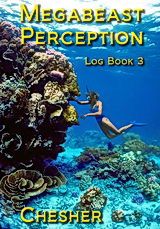THIRD WORLD WARRIORS

Sicogan is really beautiful; a well protected harbor, scenic mountains, a quaint bamboo dock to tie up to and a modern resort with a freshwater swimming pool, a powder white beach, a geometrically shaped clubhouse and a native population of unspoiled, happy people still living in grass and bamboo homes.
We could stay here for weeks. But the guns make me nervous. Guards are everywhere, no doubt making the guests from Manila feel more at home. But somehow, walking down a lovely beach and coming upon a band of toughs in tattered clothes fingering shiny Armalite Machine Pistols, shotguns, and all kinds of other mankillers gives me negative thoughts.
Ben and Darlene say the guards are partly political, partly protective. Even before martial law, most of the wealthy Filipinos had armed body guards. Now President Marcos has overall control over the armed guards and he assigns them to people and places as political favours. Wonderful. An unpleasant reminder of "the trouble in the south," petty thievery, piracy, and the growing forces of the New People's Army.
Anyway, all this makes me paranoid so, two days after we arrive, we set off again for the island of Cebu.
TAPILON URCHINS DESERVE TO LIVE

Do I see what I think I see? Yes! A faint outline on the sand, the trace of a burrowing sea urchin. I dive down and wash away the sand with my hand to uncover an absolutely exquisite little Lovinid. It is about 40-mm long with tiny delicate white spines everywhere and big, sharp white spines covering the petaloid region on its dorsal surface. There is a spot of red, like a birthmark, right in the middle. When I uncover it the big spines stand right up straight and the tiny, hair-like spines start weaving in wave-like rows propelling the little fellow over the sand like a blind little bumper car.
It has been a long time since I've seen a live spatangoid and I have never seen this kind before. I am absolutely delighted. I float quietly watching it bumble along the sand, fleeing the big pink monster it can't see (they have no eyes). Freddy comes over and says, through her snorkel, "Ooooo it's so cute".
I dive down and gently put my hand in front of it. It tractor treads up onto my palm and I surface to examine it closely. Freddy comes alongside and we ooooo and ahhhh at its delicate beauty. Around its mouth I see its tiny pink, mop-like tube feet moving in and out. I examine the plastron, the subanal fasciole, the structure of the respiratory petals. The critter is built in layers of increasing complexity, the closer you look, the more you see.
I stand up. "Wow, I've always wanted to find one of these alive. I've seen pictures of it and museum specimens but I needed to find one alive so I could examine its digestive tract."
Freddy stands up, too, removes her snorkel and looks at me quizzically. "You're going to kill it?"
"Well, yeah. You see I found out there is a highly unusual kind of siphon in some spatangoids which tie a group of genera together into a family...."
"You're going to kill that beautiful little heart urchin?" she accuses me.
"Hey, come on. How else am I going to look at it's anatomy?" I laugh, feeling a little guilty.
"That's mean." She's really upset.
"Look, Freddy, this could tie a lot of loose ends together - in the systematics of spatangoids. It's worth a paper at least and I need to publish some more stuff on echinoids." But as I argue I am looking down at the adorable creation in my hand. It ploughs ahead, crossing my palm only to find another palm waiting for it. I know, as if I could actually feel it, the gradual oxygen depletion going on as the urchin races ahead on borrowed respiration. Soon it will run out of oxygen and have to stop, exhausted.
"But that's mean," she repeats herself. "Who gives a damn about your paper? What difference will it make? Call it anything you want, but let the poor little thing go. You don't have any right to kill it."
There are two very loud arguments going on in my head. One is an indignant Ph.D. Scientist who has a whole laundry list of reasons why a dissection is both desirable, necessary, interesting and even fun. The other voice is saying Freddy is right. The urchin has every bit as much right to life as I have. Who am I to kill such a fantastic creature? Let it go. NO! Says the other voice. It's just one little urchin. Don't be ridiculous. Think of your professional reputation...Your need to publish....
Ever so gently I put the little guy back onto the bottom. Immediately, it begins to cover itself with the glittering white sand. Prismatic rainbows ripple over it as it works, furiously trying to escape by hiding under the sand. Freddy and I float there, watching, until - about five minutes later - it finally vanishes. We swim off, neither saying anything.
I feel really good about this. Really good.
Just after lunch a 60 foot steel power boat called the Sea Otter rounds the headland and drops anchor in the bay. When I first see it, I think it is a U.S. Coast Guard gunboat because of it's paint job: white with a diagonal orange stripe on its bow. It turns out to belong to Dick Bartlett, the owner of a lumber camp on Mindanao and a 20 year resident of the Philippines. He invites us aboard for a drink.
"If Philippine pirates decide to attack you, you're in big trouble," Says Dick, "They don't fool around. Got those fast little Banca Boats and you can't outrun them." He's a big man, approaching 60 years, with a sea hardened look about him. "Better keep away from Surigao Straights. Swing close to Bucas Grande then out straight out to sea as fast as you can." He traces our best route on the large map on the wall of his bar.
"Things are a lot better nowadays, but about six years ago I was on a log tug, right about here," he points to the chart again, "It was pitch black that night and we were towing a huge raft of logs for the mill. Four of us. We knew there were some pirates in the area. Shit, we had every kind of gun you could think of on board. Well, we never heard them come. You'd better believe we were watching and listening. One moment nothing, the next they were all over the log raft. Not there. There. If we had not been ready, I wouldn't be here now. The minute we saw them we blasted them with everything at once. Ohhh Christ! It sounded like the war all over again.
MARINE SCIENCE A LA CEBU
"Everyone here is very aware while driving because anyone can do anything anytime," Herr Doktor Haufmann drives wildly between three horse-drawn carriages, makes a 90 degree left turn in front of a taxi and scatters a small group of screaming pedestrians.
Filipinos love to drive and they do it with gleeful abandon. Dr. Haufmann, director of the Marine Department of San Carlos University at Cebu City joins in with deadly enthusiasm.
The everyday traffic is a carnival of colour and action. Bright red and yellow enamels flash with chrome horses and eagles. A motorcycle with a side car zips past loaded with seven people and a pig. A jeepney bus with 25 people sitting on top of each other careens down a crowded street with giant chrome horns blaring; an angry war cry answered left and right by screeching brakes, taunts, challenges and curses. Paper and debris flutter behind, a squashed chicken and outraged owner all flash by in a riot of colour, noise, and overpowering whiffs of decay.
The non-traffic scenery outside Dr. Haufmann's Mercedes is just as colourful. One second I see a charming little thatched hut in the middle of a bright green rice field and then an dilapidated factory choked with grime snaps into view followed by a store with its windows completely lined with empty coke bottles, some tin roofed squalid hovels, a brand new modern furniture store strangely transplanted from some San Diego shopping mall.
Suddenly there is a solid roadblock of taxies, horsedrawn carriages, trucks and jeepney busses all honking at once. Dr. Haufmann accelerates honking wildly as we plunge into the thicket of cars.
"HA HAH!" He shrieks in his thick German accent, "Did you see the fear in that man's eyes? He was frightened, yes?" I wonder if he is talking about the guy who almost stood his car on end in the intersection, or maybe me, or the Chinese student sitting next to me or Freddy who is in the front seat. We are going to the local market to show the Chinese student (a budding Ichthyologist) the kinds of fishes caught here in Cebu. Then we go to Dr. Haufmann's house for lunch.
The car skids to a stop on a layer of slimy garbage next to the market area; a millimetre from a sleeping, very sick looking dog. Dr. Haufmann bounds out of the car commenting, "I never let my wife drive anymore, she's too dangerous."
Frederique declines to go with Dr. Haufmann to see the fish display. She hates the markets of the Philippines. When she goes shopping in them she wears her little sea boots to keep the muck off her feet. She complains, too, about the beggars who touch her and slobber on her hand unless she pays them off. She especially does not like to be fingered by lepers who, of course, make it a point to try.
But the smell.... Ahh, the aroma of the Philippine market is unsurpassed. Having spent some time in Taiwan, where the student was from, I knew the effect all this must have on his delicate and sensitive training on food handling. While Taiwan, itself, may be filthy, their markets are clean and food is handled with great care.
The fish display is fascinating. There are reef fish of every description in the stalls. Although some are a bit ripe, they represent an amazing variety. They are also little. Teeny. I see little tropicals less than 2 inches long, bashed and battered and very cheap. Some of these have been skillfully speared right through the middle leaving a hole almost a big as the fish.
Actually, this is not much of a surprise. The reefs around here are barren. Overpopulation. Overfishing. Have one you've got the other. The Filipinos take anything and everything which is eatable off the reefs.
Dr. Haufmann leads the Taiwanese student to the back of the stalls. He's got one arm around the kid's shoulder, the other is waving in the gamy air as he expounds on something or other about fish. I follow along. Behind the fish stalls the market opens onto what is obviously a yummy mix of community dump and public toilet. There is this brick building on one side. On the far side of the dump is a river; more or less of the same size, color and ripeness as Shit River in Subic Bay. The good doctor and his charge stop at the edge of all this. As if on cue, a door in the brick building is kicked open and a skinny middle-aged guy in baggy pants comes staggering out holding a big block of mudcolored ice. A medley of colorful fishes of small size are imbedded haphazardly in the ice.
The man plops the icefishcake down on the edge of Slime River and proceeds to urinate on it. With what is obviously practiced skill, he neatly slices the ice cake into two halves with copious dark yellow urine. He hefts the two chunks and saunters off towards the fish stalls.
Our Taiwanese friend has fainted. Dr. Haufmann drags him toward me chortling happily. "Ahhhh, they are so delicate. They always turn a little green when I bring them here." I got hold of one limp arm and together we start back to the car. My friend the doktor is very pleased with himself as this is the first time one of his visiting fish experts had actually fainted.
After a perilous ride to Dr. Haufmann's house for lunch (The Taiwanese student went straight to his room. We never saw him again), we are driven back to the boat. Naturally we would never, in the Philippines, have left Moira unguarded, even though it was tied to the Custom's wharf. Dr. Haufmann loaned us one of his personal house guards, complete with shotgun, to sit on the wharf and watch the boat. When we come back it is only three hours before curfew. Cheeco, Dr. Haufmann's guard, is sitting on the edge of the dock with a friend his cousin Bruno. Bruno is very friendly.
"Do you like Cebu?" he asks as we stand on the edge of the dock with them. "You know, I really envy you this fine boat." He says. "Would you believe it? I happen to be a sea man myself. Yes, with papers, too. Three years ago I worked for the Sweet Line. The Moslems of Mindanao chartered the vessel to go to Saudi Arabia. We stopped at Calcutta. It is not so nice there. Many beggars. And," he pats his pocket meaningfully, "You have to watch out for thieves!"
Actually, I'm doing just that. Bruno's patter is too grandiose. Fake. His toothy grin brings back a conversation I had on a bus to Manila with a stranger. I commented how pleasant it was to see so many people smiling in the villages as the bus hurried past. The man, a well dressed, middle aged Filipino, replied, "Ahh yes, that's true. But you must not make the mistake of thinking that just because a man smiles he is happy."
"A sign of poverty, you know" Bruno goes on. "When people are poor they do not mind taking another's wealth." He flashes another sharky-smooth smile. "Would you be interested in having an extra crew member with you? You know, to help guard your boat and do small jobs for you? I would love to see other islands, sail off with you."
"Uh, not really, thanks, we don't have the room." Freddy has obviously been waiting to say that.
"Oh. Yes. I see. And how many people will be going with you?" He asks. Of course, it will be just Freddy and me; heading south to the northwest tip of Mindanao and then out towards the Western Caroline Islands. Bruno's gun running days on the Sweet Line with the Moslems no doubt earned him some friends among the pirates. His interest in our movements is making me very uncomfortable.
"We expect six American Marines to join us for their vacation," Freddy announces matter of factly. Bruno looks very unhappy.
"Will you be leaving soon?" He asks. We are leaving in the morning.
"No, not for another two weeks or so." I look approvingly at Freddy. She is handling this very well. I smile and nod agreement.
"From here you go to...Bohol? No? Then....where?" He was as subtle as a hungry shark. Cheeco meanwhile has said nothing the whole time.
"Oh, we're not exactly sure, maybe Porta Princessa on Plawan," I say (Porta Princessa is the heart of the pirate turf). At this Bruno's head snaps up and he looks at me steadily for a minute. He's caught on. Bruno and Cheeco look at each other, say "good night" and walk off towards the gate.



